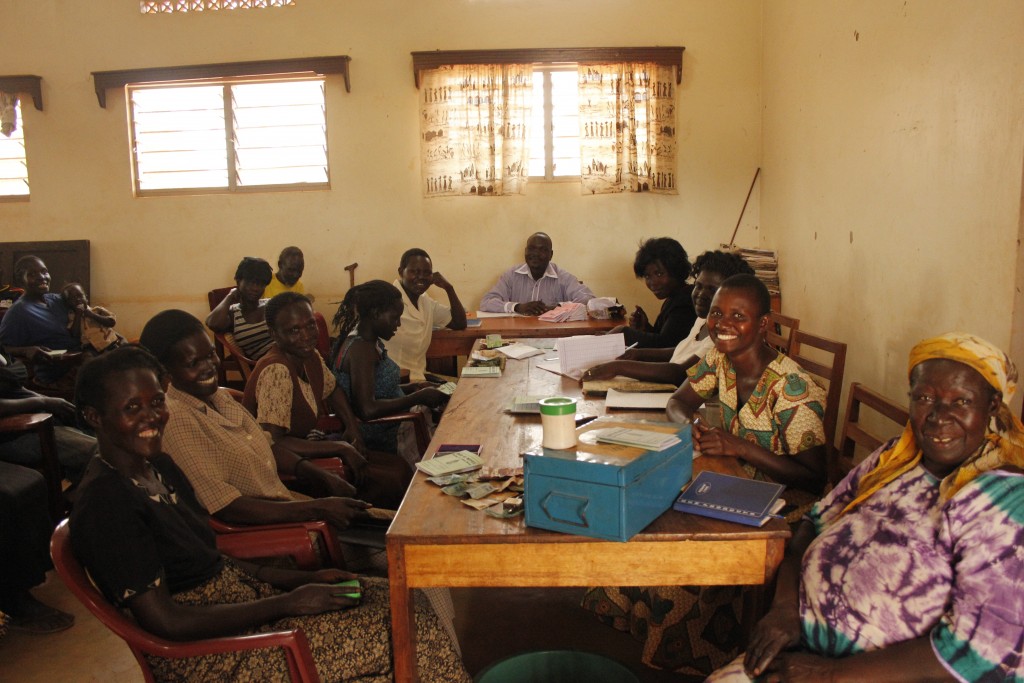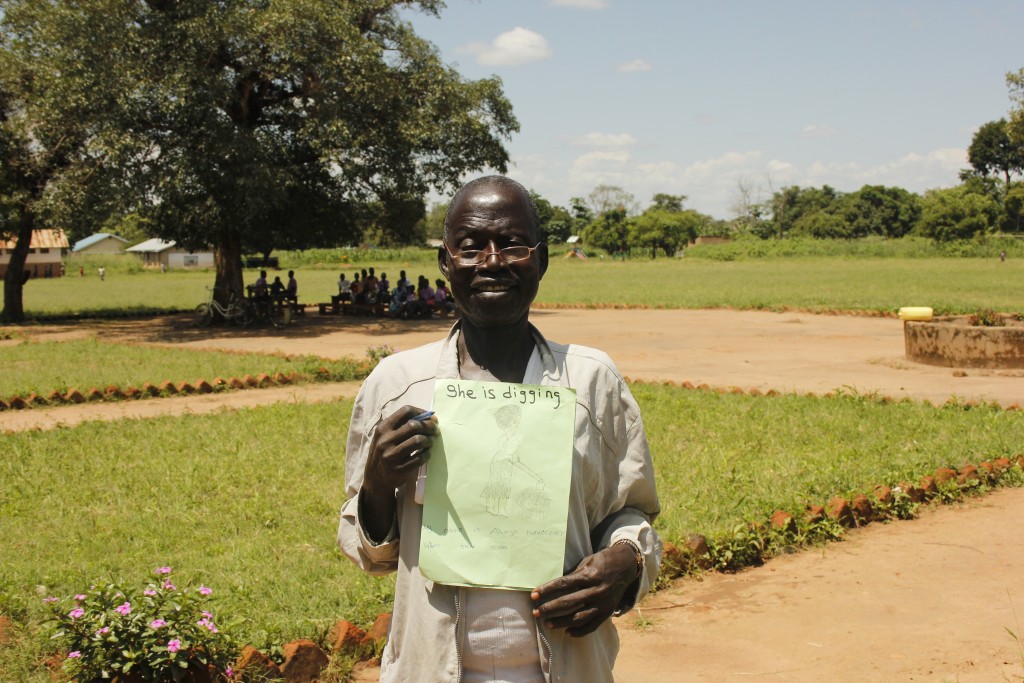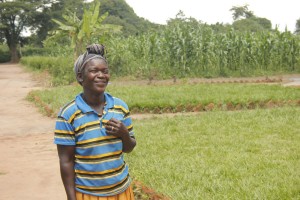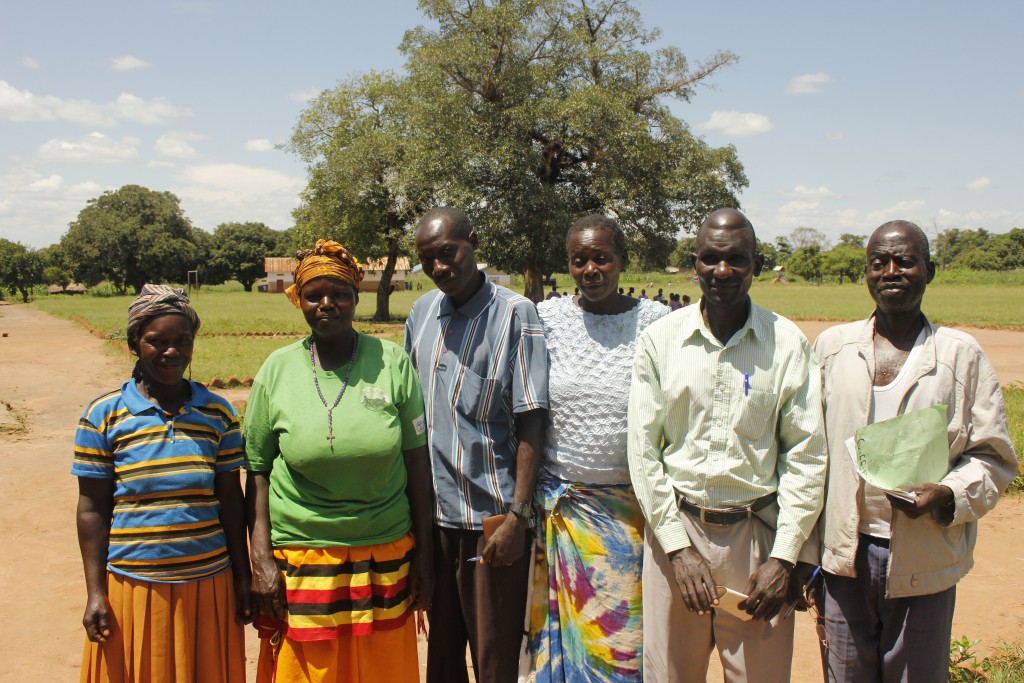How is Speed School addressing the root cause of school dropouts?
May 30, 2016One of the main reasons children drop out of school in Northern Uganda is that their parents cannot afford school fees. Although the Government of Uganda introduced free universal primary education, this money does not cover textbooks, pencils, uniform or school dinners. In addition, Government money often reaches schools months after it is due. The result of this is that Government schools usually ask parents to contribute. For subsistence farmers in rural, Northern Uganda, finding this contribution can be difficult.
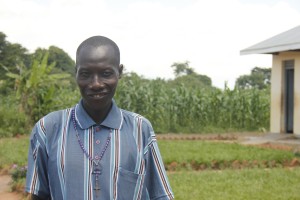 Bonnie is a parent in Northern Uganda and a local church leader.
Bonnie is a parent in Northern Uganda and a local church leader.
“I’m taking care of many children. I have some in primary and others in secondary and that takes a lot of money. So I had one staying at home until I could raise the money for his school fees.”
Bonnie’s situation is typical. Many parents take care of six or more children. And some children lost one or both parents during the insurgency by the Lord’s Resistance Army, which ended in 2006, and are now cared for by single parents or extended family.
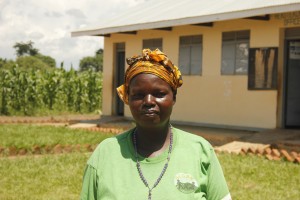 “Grandmothers take care of the children to their daughters and sons. Sometimes the sons have left, or sometimes the sons have divorced their wives. So Grandmothers are taking care of their children. But they cannot pay the school fees for all of their grandchildren so many are not enrolled in school”
“Grandmothers take care of the children to their daughters and sons. Sometimes the sons have left, or sometimes the sons have divorced their wives. So Grandmothers are taking care of their children. But they cannot pay the school fees for all of their grandchildren so many are not enrolled in school”
– Esther, a Grandmother and a member of the Speed School management committee.
To address families’ lack of money for school fees, African Revival helped Speed School parents set up self-help groups. In the self-help group, parents save their money in a Village Savings and Loans Association – a community saving club. Parents deposit a small amount of money each week and can also borrow money from the communal pot and repay it later with interest. Each group meets once a week during the time their children are in Speed School. By encouraging a culture of saving – and providing access to borrowing – Village Savings and Loans Associations help parents pay their children’s school fees on time. This helps break the cycle of absenteeism, where children miss a portion of term and fall too far behind to continue.
“When the VSLA is established, it will help these parents to sustain their children in school. Parents will be paying their children’s school fees through VSLA,” said Esther.
Because parents manage self-help groups, each group can decide if they wish to set up other activities to support the members. Some groups decide to set up income generating activities like farming, or selling crafts. Others use the self-help group as a forum to discuss challenges individual families are facing. From talking with parents in Northern Uganda, you can see they are impressed with Speed School and appreciate the second chance it is giving their children.
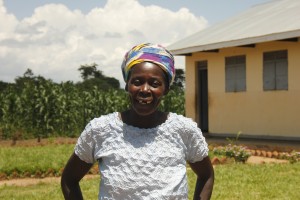 “When these children enrol in primary school [when Speed School has finished], they will have caught up with the rest because Speed School is taking them on a speedy process,” said Joice, a widow and mother of five children.
“When these children enrol in primary school [when Speed School has finished], they will have caught up with the rest because Speed School is taking them on a speedy process,” said Joice, a widow and mother of five children.
“Children are really appreciating the Speed School class and they say it is very interesting to study in Speed School,” said Alfred, a Speed School parent and member of the Speed School management committee.
Many parents have already seen great changes in their children since attending Speed School.
“My child used to wander around in the villages but these days he will come home with a storybook and he will sit at home reading,” said Betty, a mother of six children, one of whom is in Speed School.
“My child has changed a lot. He also used to wander around the villages but now when he comes home he can tell you what he has learnt and how he has been taken care of,” said Esther.
By involving parents in self-help groups, Speed School is helping parents generate income and save it towards school fees. The aim is for parents to be in a better position to support their children through school by the time they come to re-enrol in mainstream primary school.

